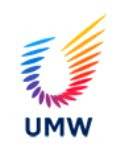Myanmar - Easing Of Sanctions In View As Regime Signals Release Of Suu Kyi
BMI View: We see an increased possibility of an easing of sanctions by the US following the holding of elections, most likely in H210, and the potential release of pro-democracy activist Aung San Suu Kyi after the polls. While an easing may be opposed by European capitals, we believe Washington will seek to continue its policy of engaging the regime and thus reduce China's growing influence.
We now see an increased window of opportunity for an easing of sanctions against Myanmar following the holding of elections in 2010 (the regime has yet to give a date of the polls). The authorities have reportedly committed to releasing pro-democracy activist and Nobel Peace Prize winner Aung San Suu Kyi from her house arrest in November 2010, given a strong indication that parliamentary elections (the first in two decades) will be held before this date. Foreign Minister Nyan Win has pledged to Association of South East Asian Nations (ASEAN) partners that the elections will be free and fair, but few doubt that the polls will be rigged in order to transfer top junta leaders into elected and nominally civilian positions. The State Peace and Development Council (SPDC) regime has still engaged in attempts to bolster its popular support by raising public sector wages, in what we see as an attempt to persuade discouraged citizens to go to the ballots, and thus strengthen its claims that the polls are legitimate.
Myanmar Increasingly Dependent On Chinese Imports |
Myanmar- Imports By Source (US$mn) |
 |
Source: IMF, Direction of Trade Statistics |
Indeed, the military will retain power regardless of the elections, as the constitution approved in a highly disputed referendum held in the aftermath of the devastating Nargis Cyclone in May 2008 gives it control of key ministries as well as 25% of seats in parliament. We see the elections primarily as a move aimed at raising the regime's perceived legitimacy and achieving an easing of sanctions imposed by the US and European powers. While the EU has continued its hardline stance against Myanmar, imposing further sanctions in August 2009, US President Barack Obama has included Myanmar among the countries he wishes to engage with. This constitutes a radical shift from the more confrontational foreign policy of his predecessor George W. Bush.
Sanctions Have Opened The Door For China
In the case of Myanmar, we see this as a shift motivated not only by the inefficiency of the long-running policy of sanctions to improve human rights conditions, but also a realisation that the US has effectively pushed Myanmar into the arms of China, which has expanded its influence in Myanmar as well as neighbouring Laos and Cambodia. With the US implicit policy aim of containing China's rising power thus slipping, we believe the Obama administration would seize on any progress in expanding political freedom, such as a release of political prisoners and/or a nominal representation of the opposition (either from the pro-democracy camp or from ethnic minorities such as the Karen) in the new parliament, to continue its cautious engagement of the regime.
Exports To China Also Increasing |
Myanmar - Exports By Destination (US$mn) |
 |
Source: IMF, Direction of Trade Statistics |
Indeed, such a policy could potentially rob China of one of its main bargaining chip for gaining access to Myanmar's natural resources, namely the diplomatic cover it has accorded the SPDC junta in the United Nations Security Council, which has prevented more far-reaching sanctions. As the charts above illustrate, Myanmar's trade with China has increased in importance in recent years and is likely to continue to do so if sanctions remain in place. Construction was begun last year on a US$1.5bn oil pipeline from the Myanmarese port of Kyaukphu to Kunming, capital of the southern Chinese province of Yunnan, which will bring Myanmar even deeper into Beijing's political and economic sphere of influence.
Now More Than Pipe Dreams |
Planned Myanmar-China Oil And Gas Pipelines |
 |
Source: BMI |
Opposition From European Capitals Threat To Expected Policy Change
Yet relations between China and the ageing generals in the SPDC are characterised by a high degree of suspicion, due to Beijing's long-running support of Communist rebels in Myanmar. This constitutes an opportunity for the US to prise Myanmar out of the Chinese grip, which we believe Washington is now attempting. As a consequence, we believe the Obama administration would be in favour of easing sanctions if the regime releases high profile political prisoners such as Aung San Suu Kyi and takes steps towards a less repressive political environment in post-election Myanmar. While such a move from Washington would be likely to face criticism, especially from European capitals with a tougher line against Myanmar, the inefficiency of the current sanctions regime provides a strong case for a policy change.




0 comments:
Post a Comment